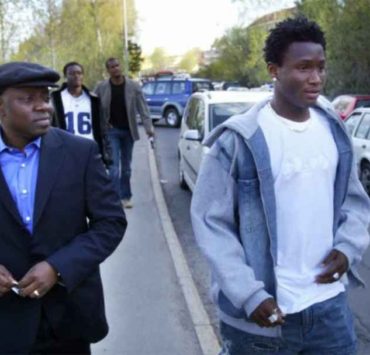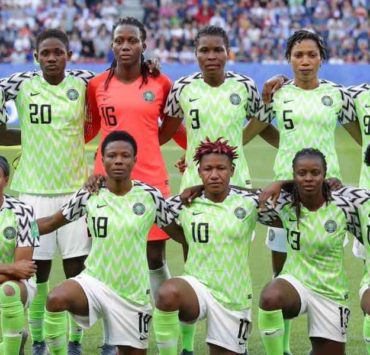Project Restart: Kicking Through a Pandemic

The impact of the Coronavirus has been far reaching over the past few months, with football coming to a halt and clubs being unable to make any revenue. However, the resumption of football, slowly but surely means that alternative means are being created to work around the impact of the Coronavirus.
The return of the German Bundesliga was met with a lot of enthusiasm by a lot of football fans who felt “starved” of football for months. The feeling was different around the world and for a league that ordinarily does not get enough attention worldwide; fans were indeed interested in seeing football once again grace their screens. The enthusiasm however went through the roof when the Premier League decided to resume the league by June 17, 2020 – a decision taken on the 28th May, 2020. For many, it was a dream come true, as “the best league in the world” would once again grace their TV screens to keep them entertained.
The Decisions of Other Leagues
Before the Premier League came to it is decision, a few other leagues had already decided to stop their leagues, with about two leagues, crowning the teams at the top of the table, champions. In Scotland, Celtic FC was crowned champions of the league, although there were a few more games left to be played.
However, countries like Netherlands and France had already laid precedence for this decision. In the Netherlands, the league was cancelled with no champions crowned and no teams getting relegated from the league or teams being promoted to the league. This was met with great resistance from second division teams, SC Cambuur, as well as De Graashap, who felt hard done by the decision, as they were odds on favourites to get promoted into the Eredivise. Both teams decided to sue the decision making body. However, their case was struck out by the judge, who stated that the decision was valid, and the KNVB was well within its rights to come to that decision.
In France, French giants, Paris Saint Germain (PSG), were crowned champions, with Olympique Marseille and Stade Rennes qualifying for the champions League. This meant that bottom clubs, Amiens and Toulouse were relegated. The extent to how far reaching the decision was evident in Lyon missing out on a European position – which has not happened in a long while. It is interesting to note however that Lyon, who finished the season 7th, were one point behind Reims, with about 10 games to go. It’s possible to argue that they stood a good chance to qualify for the Europa League, at the very least. However, the decision has been reached, and it didn’t go down well with Lyon president, Jean Aulas, who alongside relegated clubs, Toulouse and Amien, have threatened legal action against the Ligue 1.
While these decisions might seem harsh, the possible considerations at those points in time weren’t too many, as the league bodies took those decisions based on the current happenings at that point in time. In France and Netherlands for examples, the Ministers of sports suspended sporting activities for a while, hence, the decisions taken.
The Premier League, and “Project Restart”
The Premier League came to an abrupt stop sometime in March, as cases of coronavirus began to escalate in England. Club representatives were therefore saddled with the responsibilities of finding possible solutions to making sure the league would restart.
The decision taken in May, to restart the league has (or had) a number of implications which the Premier League tried to avoid, or solve: –
The Economic Aspect
The suspension of the league for almost two months affected the clubs massively. One of the few ways through which clubs generate revenues includes ticket sales, sales of merchandise, sponsorship, among others. Thus, the lack of football cost the clubs a lot of money, as they were unable to generate funds from gate takings. It has been stated that top clubs lost almost 5 million pounds (or more) per month, due to the lack of football. In addition, the lack of merchandise sales also became a huge problem, as fans couldn’t buy merchandise, such as jerseys, tracksuits, face caps, etc. However, the decision to restart the league (especially without the fans), would most likely still see these issues continue for a while, or be in consideration by the Premier League.
Legal Implications
The legal implications centered mostly on employment contracts. Questions were raised about the transfer system, as most contracts were to come to a close “at the end of the season” – which implied May/June. This was however resolved by Fifa, who provided solutions to this issue (transfers), some of which include: –
- Where an agreement is due to expire at the original end date of a season, such expiry be extended until the new end date of the season. This basically means that rather than the player’s contract ending at the end of May/June, it ends when the season ends. Thus, if the season ends in August, the player’s contract ends in August.
- Where an agreement is due to commence at the original start date of a new season, such commencement be delayed until the new start date of a new season. Just like the first (how it ends), the player’s contract begins when the new season starts. Thus, a player who signs a pre contract with a new club will only begin at the beginning of the new season.
- In case of overlapping seasons and/or registration periods, and unless all parties agree otherwise, priority be given to the former club to complete their season with their original squad, in order to safeguard the integrity of a domestic league and MA competition. Overlapping seasons could happen could occur where a player in country A is bound to move to country B, but the season in country A overlaps into country B – he would have to finish the season in country A before making a move to his new club in country B.
- Possibly one of the best solutions, as it covers almost all angles, for this season. The adverse effect of the pandemic could see a restructuring of the transfer window.
Broadcast
TV broadcast has been a huge source of revenue for the premier league. Over the years, the Premier League has become the most watched and has been dubbed the most “entertaining” league in the world. No doubt its huge followership has been due to the live broadcast of matches. With TV rights deals said to be worth about 1 billion pounds (or more), it is little wonder that the premier league never considered the decision to cancel the league. In England, 3pm games were not shown on TV, as the Premier League felt televising the game on TV would duly affect attendance of matches. This shows just how important TV is. The excess of a billion pound every season from broadcast revenue which is in turn shared among Premier League clubs.
There has however been a new consideration by the Premier League to make sure fans maintain social distancing and still get to watch their clubs play. Thus, for the first time in years, live premier league games would be shown on free to air, with BBC showing football matches live, for the first time in over 10 years. However, the Premier league did well to consider its broadcast revenue as its original rights owners, Skysports and BT sports still get to show some games exclusively. This is a laudable idea by the Premier League to improve viewership, maintain social distancing, while protect their TV revenue.
New Rules
The return of the premier league also sees introduction of new rules, as well as health guideline implementations. For one, clubs have the opportunity to make 5 substitutions, an improvement from the regular 3 substitutions in a match. There are also guidelines regarding social distancing on the bench, as well as training facilities.
With the most watched league once again gracing out televisions, emotions will be high – both on and off the pitch as fans have waited for this moment. However, it is important to keep in mind the social (or physical) distancing measures. There will definitely be better days.
Ayomide Eribake is a final year law student at the University of Lagos. He has keen interest in sports law, insurance law, and labour law. He has written and researched on sports law issues and has been a huge advocate for sports insurance in Nigerian sports. He spends his leisure time reading, writing, watching football, and supports Liverpool FC.














